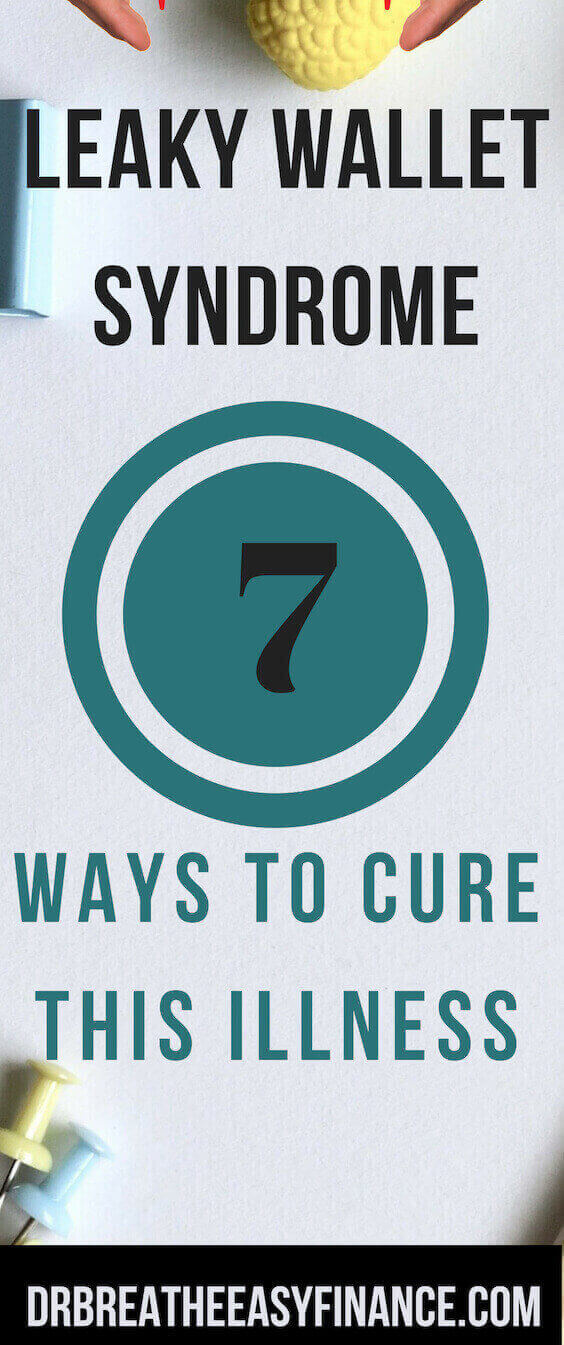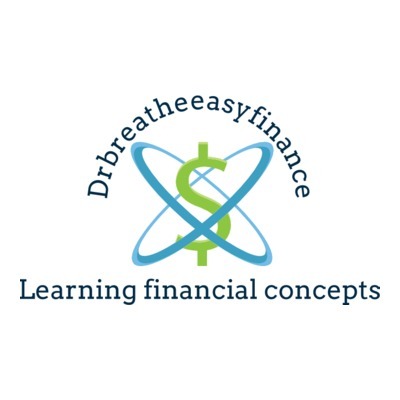I know what you are thinking. Sigh!! Doctors and their syndromes. Does everything have to be an illness? They think they have a cure for everything. Tomato pill did not even work in the 1800s.
Personal finance is similar to dieting in that you have to eat food, but you have to face the consequences if you eat too much. You need to spend money, but there is a predictable consequence if you continue to spend even just a little above your means.
Personal finance is similar to dieting in that you have to eat food, but you have to face the consequences if you eat too much
The truth is, there are many people walking around who have not been diagnosed with the leaky wallet syndrome but they have it. This is one of those illnesses that are vastly under diagnosed. You can see it all around you and you notice it.
I love the parable in the bible about a master who gave talents to his servants. The talents were given according to their abilities. Essentially, the master entrusted different amount of talent to different servants – One, two and five.
When the master came back, he expected them to have done something awesome with their talent. Instead, one of them buried it. The master was upset and the story got scarier from there.
Anyways, the part I want to emphasize in this post is that financial stewardship is no respecter of how much you have. The master did not care if he gave the servant 1, 2 or 5 talents, but that the servants improve on their talents.
It doesn’t matter whether you have $100 or $1 billion dollars, your attitude and psychology towards money determine if that money will survive or improve in your hand over time.
This is why stories of lottery winners who won millions of dollars and are now living on the street are very rampant. If you don’t fix your mindset, even a windfall or free money will not save you.
Table of Contents
What is leaky wallet syndrome
Leaky wallet syndrome (LWS) is a psychological mindset and disease that makes it impossible for individuals to hold on to money or build wealth. The minute they earn money, they find ways to spend it almost immediately. Income is not the problem in this syndrome, it is the spending habit. While they make a decent income, these individuals find it impossible to live below their means. Examples of classic symptoms (occurs in 90%) – They have difficulty having money leftover in their checking account at the end of every month, they have many past due bills, and they are unable to pay off their entire credit card balance each month.
Leaky wallet syndrome does not only apply to individuals, but it can also apply to business or family too. In this case, it is called a leaky wallet epidemic.
Diagnostic evaluation of Leaky wallet syndrome
There is no laboratory study, images, and surgical evaluation to diagnose this disease. Perhaps a pan scan of your bank account and prior images can tell us how fast money leaves your bank account after your paycheck.
This is mostly a clinical diagnosis. Its like one of those things – you know it when you see it, like the bends – aka decompression illness.

The differential diagnosis for leaky wallet syndrome
Not to be confused with
- Transferring money from your bank account to investment account
- Using the money to pay off debt
- Having a life disaster that needed you to spend all your money
- Fat wallet syndrome

7 Cures For Leaky Wallet Syndrome
1.Learn to delay gratification
Let me be the first to tell you that we all have the urge sometimes to go wild and spend money. Even, a minimalist / prodigious accumulator of wealth like me have my moments. The major difference is what you do with those desires.
There used to be a famous experiment, I think it has been debunked now but the message still works for our purpose. I am also paraphrasing it from memory so hold on to your swords.
So they apparently performed a mean experiment on kids in the dark ages. The experiment was simple – have 1 meat pie now or have 5 meat pies in 5 days. So, of course, many of them picked the instant gratification, few picked the delayed gratification one.
Anyways, to cut the long story short, after following them through adulthood, the ones who said – I can wait for 5 days to get more meat pies were more successful.
I know if that’s anything like my 3-year-old daughter, she will eat the meat pie now and then find a way to convince the others to give her their meat pies in 5 days.
When I finished training, I could literally go out and start leaking my wallet because, after all, I have earned it. Let’s get that Ferrari!!!
Instead, we rented – still renting, still drive my Toyota Corolla 2011 with pride. I even park beside the nice cars. Need a hub cap and some side mirror fixed but runs well.

The result, with consistent chipping through fellowship and first 6 months of my real job, close to 300k loan combined is gone.
If you can’t delay for too long, that is ok too, but do enough to get out of debt and supersize your savings a little before loosening the purse. But never to the leaky wallet level.
2. Find your vice and work on it
It sometimes takes a single weakness to bring people down financially. There are people who do everything right accept their love for travel. That was a random example by the way.
It is nice to travel around the world, in fact, my wife and I went for Europe tour and spent over 10k doing it, but it was something we budgeted for.
People try to justify different ways to leak their wallet and sometimes it is even emotional. But we are not deceiving anyone but ourselves.
Here are some of the common categories where people could have a financial weakness: vacations, Christmas gifts, watches, pets, jewelry, relatives, dining out, boats, clothing, cars, shoes, personal electronics, charities, collections of any kind, hobbies and sports activities.
Depending on your vice, you might be able to survive one, but if you have multiple vices, your wallet is in very serious trouble.
I am sure many of us will look at the list and go, charity is not a vice. All I can say is that anything overdone can cause serious harm to your wallet.
I am for charities, in fact, in the 5 pillars of money, every parent needs to teach their kids, we discussed how every parent need to emphasize giving to their kids.
However, if there is a fire in the building at work, do you save others first or save yourself first?
In an airplane, in the case of emergency, should you put the oxygen mask on your child first or put on your own oxygen mask first?
The truth is, if you are not financially stable, you will not be able to help others for the long haul.
Many people do not realize their vice until they have a sudden windfall like winning the lottery, getting a pay raise, nice tax refund, inheritance or gift.
To figure out your vice, start soul searching now on the top items you buy that add little value to your life or you do it excessively.
Another way to figure it out is to think long and hard if you were to win $1 million lottery right now, what will you spend it on?
Will you finally buy that Lamborghini you have always coveted or will you invest the money?
How many of the items you plan to purchase would seem like reasonable purchases to friends and family vs. how many would seem like ridiculous extravagances?
3. Automate your finances
This will only work after you have done stage 1 and 2. If the major problem is the psychology of seeing the money in the bank account, then the problem can be solved by automation.
First is to make sure you maximize all the saving buckets at work like the 401k, 457, HSA, dependent care FSA and the regular FSA with caution.
Most workplace has a way to decide where your paycheck goes. For example, we split our income into 2 accounts now.
I get paid every two weeks, so $2,500 goes into our spend account every paycheck making 5 k per month which is our monthly budget.
The rest of the money goes to our other joint account for paying off debt (when we were paying off debt) and investing (now we are focused on investing).
We only use the spending account and as far as we are concerned, that’s how much we have to work with.
4. Have a personal finance mission statement
The financial mission statement is the outline of your value and your goal for your money. For example, we have a goal of financial independence in 15 years or less. Mind you we kept moving the goal post backward, it used to be 23 years.
Whenever we get tempted to do something silly, like buying an expensive house, we look at our financial mission statement and come back to earth. Always ask yourself, this action I am about to take, does it further my bottom line? Does it help me reach my goal faster? If the answer is no, then reconsider.
A mini example of ours is the 12 toddler steps to financial freedom – this is our best-viewed article.
5. The 30 days rule will plug your leaky wallet
If you are guilty of overspending, here is an article that gives you 12 ways to stop the habit right now.
Out of their 12 habits, observing the 30-days rule fits perfectly into our war against leaky wallet syndrome.
This is a simple trick, no need to complicate it. The reason for this rule is because 40% of all money spent online is by impulse.
If you go to a store for something else and you saw another item on sale, ignore it. It is not on your list, move on.
However, if you feel the urge to buy a non-essential item, put your card back in your wallet, turn back and go home. Let it simmer. If after 30 days, you still think it is a good idea, then you can buy it.
The stores know this, that is why everything is now online and they have brought all the luxury to a matter of a click. Avoid this trap and do the same, do not buy anything on impulse.
We love Amazon Prime, but we had to take a few months break at one point as we noticed we were buying many things on impulse. If I can’t find my charger in 24 hours, click – new charger delivered in 48 hrs. Most of the time I find the lost one before it arrived.
6. Go on a credit card fast
This is also another good one I found to be very useful. There is evidence behind this, I am not making it up.
Smart people – aka researchers from San Francisco State University interviewed about 1,600 people, their result suggests that people tend to do more compulsive spending because of a psychological effect – Credit card separates the pleasure of buying stuff from the pain of paying for it.
People tend to do more compulsive spending because of a psychological effect – Credit card separates the pleasure of buying stuff from the pain of paying for it.
I don’t need a study to tell me that as I have experienced this myself. It is almost impossible for me to part with cash, when I withdraw $100, that money stays in my wallet for weeks, sometimes months.
In fact, I will rather pay for some things with a debit card, while still having cash in my wallet. I sometimes cannot believe myself either.
This is why we advocate the envelope cash system of budgeting for people who have self-control issues. It is a fact that it is easier to let go of money in your cards than parting with cash. Imagine handing over $20,000 for that car in cash. Will you cry? I know I will.
7. Always weigh the pros and cons before buying
Well, some researchers at the University of Pittsburgh indicated that people who weigh the pros and cons before making a decision are more likely to live a healthier life and save for retirement.
I know!! we don’t need research to tell us this, but the research does make it sound more authoritative. If you are a purist and want to read the 168 pages of the article, be my guest – Pros and con research
Summary
I know these steps all appear simple, but no one will do it for you, you have to determine to improve yourself and cure yourself of the leaky wallet syndrome.
The most important is to fix your psychology and values, then you will be on a fast track path to financial independence.
Without fixing the underlying issues, a pay raise or windfall will not solve your problem of overspending.
Learn to delay gratification, work and fix as many vices as you can, automate your finances, have a personal finance mission statement, try the 30 days rule, go on a credit card fast, and always weigh the pros and cons of every action you take.
Please share and pin our image. Comment to let us know what you think. Do you have a vice? Is the leaky wallet syndrome real?
I am a pulmonary and critical care doctor by day and personal finance blogger/debt slaying ninja by night.
After paying off close to $300,000 in student loan debt in less than 6 months into my real job, I started on a mission to help others achieve the same. There is no magic to this than to strap up and get it done. Some of the ways we achieved this include side hustle, budgeting, great negotiation skills, and geographical arbitrage.
When I was growing up, common knowledge in Nigeria is that there is one thing you cannot trust anyone else with, and you guessed it – your money.
Being frugal came easily to me based on my background. However, the concept of building wealth did not solidify in my mind until when I finished medical school. I wish I knew what I know now when I was 14. Still, I don’t know enough and I am constantly learning to improve my knowledge.
My goal is to reduce financial illiteracy among young professionals. I am catering to the beginners – babies and toddlers in financial literacy.








Xrayvsn says
Need to find a vaccine for this (despite anti-vaxxer protests). This pandemic of LWS spreads quicker than the bubonic plague of yesteryear.
Doesn’t matter how much you earn, if it goes right out the door you are no richer than you were before that big paycheck.
Max Out of Pocket says
Yeah, my sister has this. They definitely need a vaccination for Leaky Wallet Syndrome – any guesses on how the pricing would look for it? Think it would be considered a preventive vaccination? That might waive cost share to the patient! Have a good weekend!